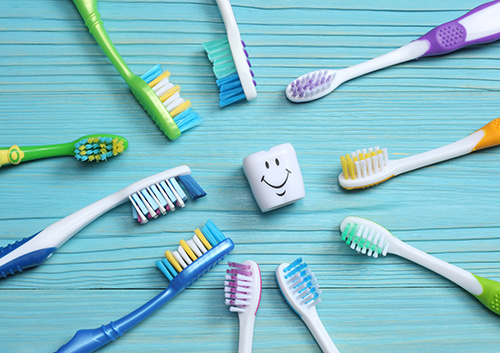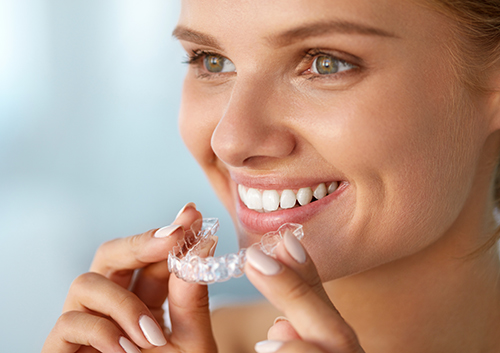Why Do Molars Seem to Get More Cavities?
October 20th, 2021

Probably because, for many kids, molars do get more cavities. So let’s answer two better questions: Why do molars get more cavities? And, how can we help prevent them?
It’s the Pits. (And Fissures.)
The reason molars are so useful—and more likely to develop cavities—is because of their shape. Unlike our front teeth, which are used to bite through foods, molars are used to grind and chew. That’s why they are so much larger, with a flat surface on top. Well, not exactly flat.
When you look at a molar, you’ll notice that the top isn’t really smooth at all. It’s covered with little indentations known as pits and longer grooves called fissures. These irregular features both trap food particles and make it more difficult for bristles to clean them away. Cavities in molar surfaces are so common that they even have a specific name: “pit and fissure cavities.”
But molar biology does not mean tooth decay is inevitable! There are steps you can take to protect your children’s molars as they grow, while you’re providing them with dental strategies that will keep their adult molars healthy and cavity-free.
Preventing Pit and Fissure Cavities
- Don’t Just Brush—Brush Effectively
The first step in preventing any kind of cavity is brushing properly. Your child should be brushing at least two minutes, at least twice each day. And while the time we spend brushing is important, technique is also key.
When you’re showing your child how to brush, be sure that the tops of molars, upper and lower, get brushed thoroughly, with special emphasis on cleaning pits and fissures. Make sure the toothbrush is small enough to fit your child’s mouth comfortably and reach all the tooth surfaces. Replace worn-down brushes or electric toothbrush heads after three to four months when they no longer clean as effectively.
Your child will probably need adult supervision from toddler years through the early years of grade school to learn how to brush properly. This is time well spent, as your child learns cavity-preventing brushing techniques which will last a lifetime.
- Eat a Tooth-Healthy Diet
Plaque bacteria use the sugars in our food to make acids. These acids break down the mineral strength of tooth enamel and eventually lead to cavities. And because pits and fissures are great hiding places for bacteria and food particles (especially sticky ones), molars are even more at risk for cavities. Limiting sugary, sticky foods like sweet treats and simple carbs helps reduce that risk.
Acidic foods like flavored juices, sour candies, sodas, and power drinks also weaken enamel and can leave teeth more vulnerable to decay. Help your child avoid cavities by limiting acidic foods and drinks, making them part of a balanced meal, and/or rinsing with water after eating.
- Use Fluoride Toothpaste
Fluoride toothpaste not only reduces the risk of cavities, it also helps strengthen enamel that has been weakened by bacterial and dietary acids. Win-win!
- Ask About Sealants
Sealants are invisible, safe coatings which protect molars by preventing food and bacteria from getting trapped in their uneven surfaces. The top of the molar is first treated with an etching solution to allow the sealant to bond tightly to the tooth, a thin coat of sealant is painted on, and then it’s hardened under a curing light. That’s all there is to it.
Sealants are often recommended when children’s permanent molars first erupt, when they are especially at risk for cavities. Sealants can last from three to five years (or even longer), and studies have shown a dramatic reduction in cavities for patients who use sealants compared to patients with untreated teeth. Depending on your child’s individual needs, Dr. Chad Vanourny might recommend a sealant for baby molars as well.
- Regular Exams and Cleanings
It might be hard for you to tell if your child’s molars have been affected by sticky plaque, or sugary foods, or acidic drinks, or inadequate brushing, or any other potential cavity-causers. It’s not a difficult job for Dr. Chad Vanourny, though! Through regular checkups and cleanings at our Charlotte office, we will discover any conditions that might lead to cavities, and, if necessary, treat small cavities before they lead to more serious decay.
Statistically, childhood molars have a greater chance of developing cavities than incisors and canines. Help your child beat the odds by understanding why these teeth are at risk and by working with your dental team to give your child years of healthy teeth now and a future filled with beautiful smiles!




 Website Powered by Sesame 24-7™
Website Powered by Sesame 24-7™